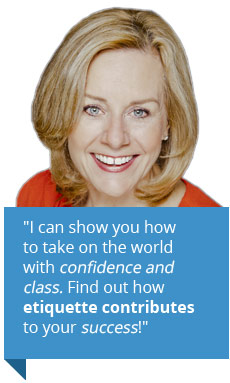Oh, To Feel Beautiful!
February 20, 2011If I said that grass is green, or that tree is beautiful, you’d look at me with blank, open acknowledgement… yes, this is true. The grass is green. That tree is great. You probably wouldn’t feel the need to argue if it’s green enough or beautiful enough… you’d likely just nod and accept it.
But, tell a North American woman she is beautiful and in a flash, you will see a gust of feelings cross her face: gratitude, surprise, doubt, disagreement, blushing, looking away, nervousness.
Relaxed acceptance? Not so much.
Why is that? Why can’t we recognize or accept our own natural beauty?
What’s worse, we actively resist it! Women argue for our flaws (oh, I’m too chubby to be beautiful) and compare ourselves to movie stars (I’ll never be a Catherine Hepburn), dismissing our own magnificence with a nod to a digitally-altered poster.
There is something so sad about women habitually denying their own beauty. Women everywhere – the essence of femininity, inherently beautiful and soft and receptive – we are denying ourselves an undeniable birthright: the right to see and appreciate ourselves in all our feminine glory!
Instead, we hold our natural, gorgeous selves up against the impossibly perfect standards of fashion, Photoshop and cosmetology, and instead of feeling naturally glorious, we feel like we never quite measure up.
And the saddest thing about this tendency? It’s occurring on a massive scale.
Women all across North America are united in the belief, “I am not good enough.” Don’t believe it? Check the facts:
• Women use, on average, 12 beauty products every day.
• Three minutes looking at a fashion magazine makes 70% of women, of all ages, feel depressed, guilty and shameful.
• Nine out of 10 girls regularly use cosmetics by age 14.
• The number of women who say they are “sometimes or always on a diet”: college age 91%; high school 40-60%; 9-11 year olds 46%.
• The average North American woman is 5’4” tall and weighs 140 lbs. The average model is 5’11” and weighs 115 lbs.
• The amount North Americans spent on cosmetic surgery in 2007: $13 Billion. Estimated cost for basic nutrition and healthcare in developing nations: $13 Billion.)
Take a moment to digest that. The promise of a “better” appearance has us so mesmerized, collectively, that half of our prepubescent girls are actively trying to modify their bodies. Three quarters of women feel genuinely inadequate – within three minutes! – when reading a magazine full of digitally perfected images.
What’s wrong with this picture? A LOT! Clearly, somewhere along the way, we bought into a skewed sense of values, where an artificial sense of beauty can compromise our feeling of worth.
But… WHY?
The Culture of Beauty
The beauty products industry thrives by creating a subtle yet pervasive “culture of dissatisfaction” with ourselves, in our natural state. And this industry has a lot of dollars to drive its agenda:
Hide that flaw! Smooth it, cover it, squeeze it, lift it, accentuate it, minimize it, paint it… whatever it takes, there’s a product for that! (Probably dozens, actually – there’s something for everyone!) When your face and body and hair and clothes are ju-u-u-st right, and you look like this professionally staged, expertly Photoshopped picture… then (maybe) you’ll feel pretty.
When we’re exposed to hundreds of subliminal messages like these every day, is it any wonder why we have trouble accepting our own inherent beauty?
Isn’t it the ultimate irony when a magazine full of “be yourself, love who you are” articles is saturated with product advertisements to “improve” yourself?
Listen, I’m not saying we should drop our beauty products and hygiene regimens, and dance like hippies in the fields. But, I do think it’s worth stopping to ask ourselves:
“What does it take for me to feel beautiful? Truly, genuinely beautiful.”
Do you know how you would answer that question? It’s important, because until you do, until you develop an intimate appreciation for yourself, you’re vulnerable to the messages of the media – much more vulnerable than you may suspect.
Case Study: Fiji
I was fortunate to do some work in Fiji last year, and I was deeply touched by the genuine sweetness of the people and their culture, so rich and ancient. Perhaps my fondness for the island made the following situation even more touching.
In the documentary, “America the Beautiful,” Harvard sociologist Dr. Anne Becker discussed her research on the culture of Fiji at a truly pivotal time: the introduction of television. Until 1995, Fijians enjoyed a rich and stable society based on tightly-knit family structures and centuries-old traditions. Large, soft, round women were valued, respected and appreciated as a sign that the tribe and family were doing well.
The fabric of their society was forever changed in 1995 when television was introduced into the Fijian culture. Parents encountered a new level of disrespect from their children as their ancient cultural traditions were repeatedly challenged by the mass media messages on the screen.
One of the most disturbing changes appeared in the behavior of young girls. For the first time, they began to vomit to control their weight. Within only three years, 11 percent of girls had tried this – the same figure we find in major North American cities!
This is direct and compelling, scientifically documented evidence that the mass media is not doing women any favors.
Practicing Acceptance
What kind of place would your head be… if you accepted yourself?
Sit on a bench in a busy public area and take notice of the body shapes that pass by. In no time at all, you’ll notice that everyone is unique – and really, really different! Imagine what it would feel like to have her body, or his… her hair, his limp, those teeth.
Try to find even one person who looks like they stepped out of a fashion magazine. You won’t be able to. Even the one who comes closest would say they don’t measure up.
And yet, every one of us is beautiful – in our own unique way.
Perhaps the deepest beauty is confidence – total self-acceptance and self-ownership… not disowning or hiding your flaws, but showing up fully: here I am. Not “here’s a good presentation of me,” but “this is who I am.”
In the words of famous playwright Eve Ensler, “If we develop the eyes and the spirit to see beauty in a different way, we would see every woman is beautiful.”
On her travels through Africa, she asked a woman in the fields near Nairobi, Kenya, “Do you like your body?”
The woman looked at her as if she could not understand the question. “Do I like my body?! I loooove me body! Look at me hands, and fingers… and my arms, so strong… and my legs, they carry me along….” The delight just flowed out of her! For this woman, in this culture, it is only natural to love and appreciate one’s body. She could not imagine it any other way.
She asked Eve, “Do you think that this tree isn’t beautiful because it doesn’t look like that tree? You’re a tree; I’m a tree. You’ve got to love your tree!”
Such simple wisdom… don’t you think?
 Print This Post
Print This Post
Leave a Reply




No Comments Yet
You can be the first to comment!